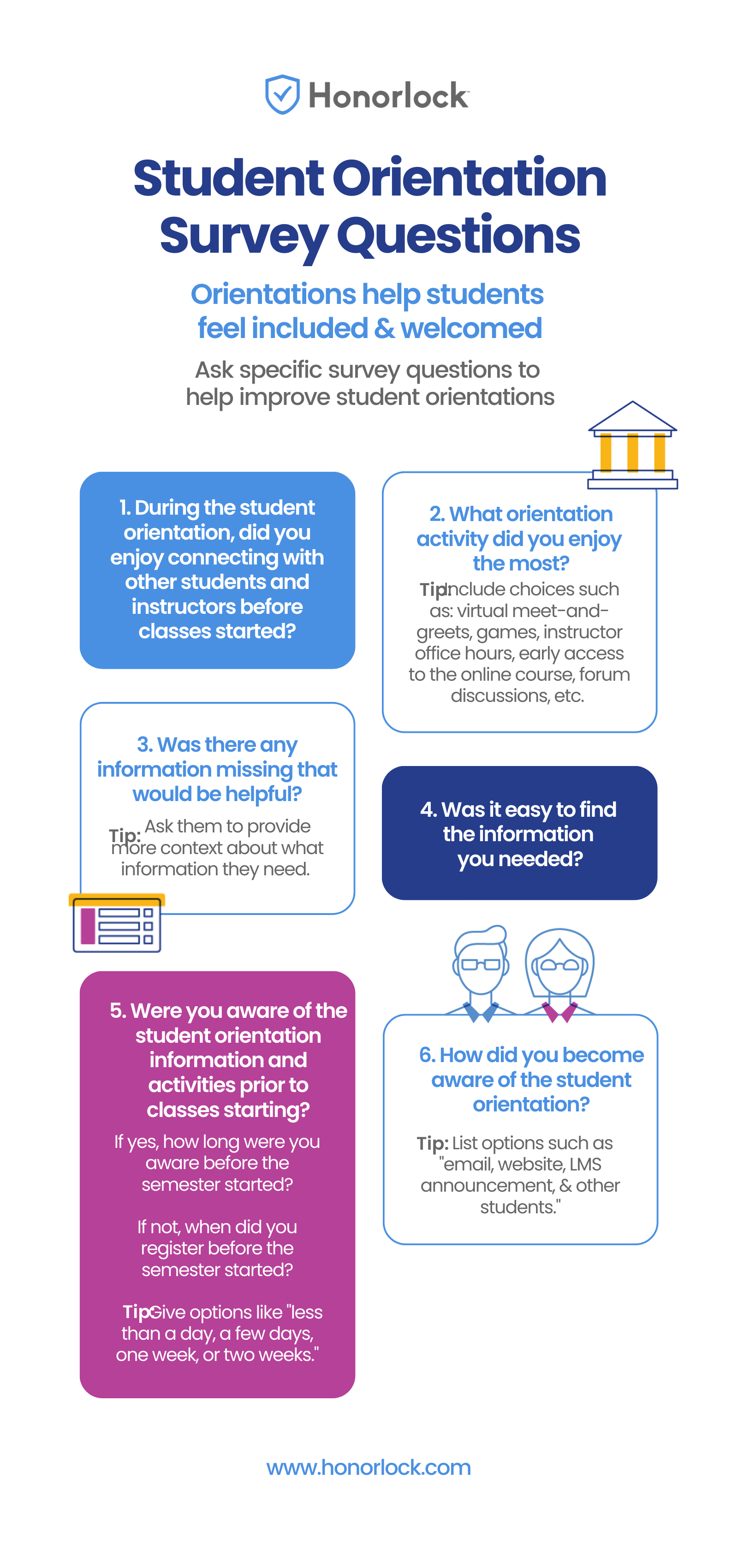Did you know a recent survey found that when students have a great welcome experience, they’re 35 times more likely to have a positive university experience overall?
But that same survey found that only a third of students had a great orientation. As You can imagine, orientations for online students can be even more difficult for online students.
8 ways to improve the online student orientations
1. Virtual welcome activities before the semester starts
Plan welcome activities to give students opportunities to connect with others and meet their instructors.
Fun ideas for virtual welcome activity:
- Meet-and-greets through video conferencing
- Games (trivia, virtual escape rooms, bingo, etc.)
- Online group scavenger hunts
2. Simplify all processes
Whether it’s online course registration and getting support or even just providing single sign-on, remove any obstacles.
3. Keep DEI at the forefront
Students need to know why DEI is important and how it benefits the entire educational experience for themselves and others. And make sure that they know what’s expected of them and what they should expect from you.
DEI resources:
- Ebook: How to improve DEI for online learning
- Ebook: Is DEI a cost or investment?
- Copy & paste diversity statement template that you can edit or use as is
4. Create one location with everything online students need
Online students need one location, such as a site page or within the LMS that has everything the need, like:
- Learning resources (online library, OER, tutoring, study groups etc.)
- Student support information
- Important dates (midterms and finals, the start and end of the semester, holiday breaks, etc.)
- Hardware and software requirements
- Student privacy information
5. Develop an online student ambassador program
Connect current online students with future students so that they can share their experiences and tips for success.
6. Ask students for feedback about the orientation
Use student surveys (like examples above) to improve the welcome experience.
7. Use emotional intelligence
Emotional intelligence is something you can use and continually improve over time. Being emotionally intelligent helps build relationships, trust, and communication, which is exactly what you need in an online learning environment.
8. Tell them about you
Help establish credibility and build trust with students by giving them some information about you. Keep it simple and don’t overthink it. Talk about your background, hobbies, education, and even a funny story about your life.

